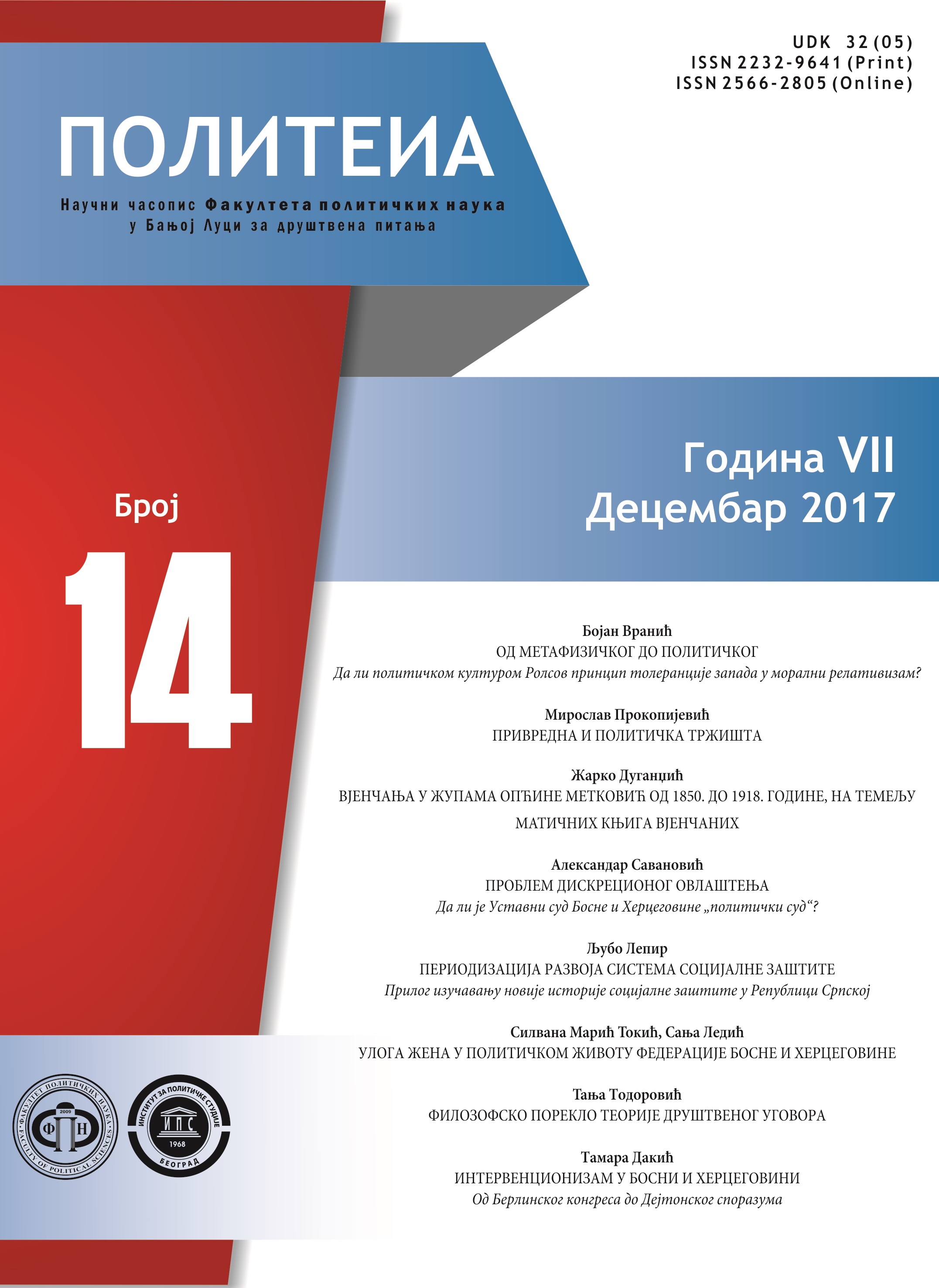Uloga žena u političkom životu Federacije Bosne i Hercegovine
The role of women in the political life of the Federation of Bosnia and Herzegovina
Author(s): Silvana Marić Tokić, Sanja LedićSubject(s): Politics, Gender Studies, Political Sciences
Published by: Fakultet političkih nauka Univerziteta u Banjoj Luci
Keywords: Women; politics; society; gender equality; Federation of Bosnia and Herzegovina; Cantons of Federation of Bosnia and Herzegovina; local level of government;
Summary/Abstract: As a human activity, politics has long been intended for men only, with women and other minority groups not being allowed to participate in either the social or the political life of the community. Starting in the 1970s, the role of woman within our social and political life strengthened in several countries, but only with legal and incentive measures. The role of women in Bosnian-Herzegovinian society, public life, does not meet the quotas introduced in 1997, which require a 40% women involvement in politics. Te research covers the period from 2016 since the last election to date. The aim of the research was to determine the level of representation of women in the political life of BiH at the Federation of BiH, cantonal and local level, respectively. The key hypothesis of this paper is as follows: Is the low level of representation within political bodies of the Federation of BiH, cantonal and local level, respected? Research has shown that women in the BiH Federation are not sufficiently represented in political life. In terms of percentage, no part of the survey pertaining to prime locations, ministerial posts, mayor’s seats, and mayors meets the prescribed quota of women’s representation in politics being 40%. The Bosnian - Herzegovinian society, if it wants to go in the direction of progress and development, and democratic society, must increase the participation of women in social and political life. Only those societies and states that exclude all forms of discrimination and increase human rights, especially women’s rights, as equal members of the community can call themselves democratic and developed societies.
Journal: Politeia - Naučni časopis Fakulteta političkih nauka u Banjoj Luci za društvena pitanja
- Issue Year: 7/2017
- Issue No: 14
- Page Range: 98-112
- Page Count: 15
- Language: Croatian

